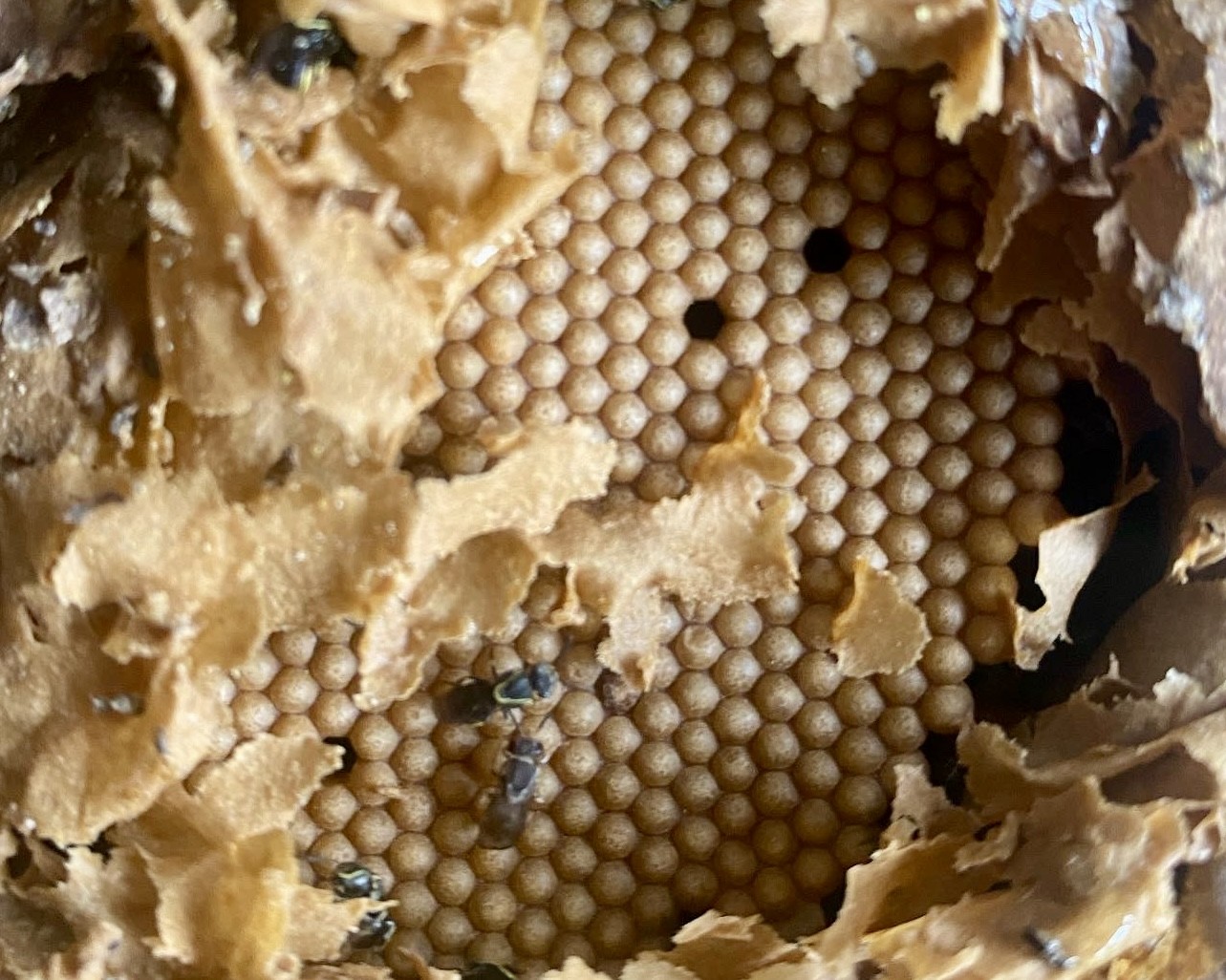Embera Embodied Knowledge: An Eco-Cultural Archive for Stingless Honeybee Conservation, Kinship Revitalization, and Land-Stewardship
Alejandra Cano
Native American Studies
UC Davis
The Embera de Chigorodó, an Indigenous community in the heart of the Americas, and their millennia-long kinship relations with stingless honeybees hold critical insights to addressing pollinator decline—a planetary crisis costing between US$235-$577 billion annually in crop loss. Most scholars trying to address pollinator decline focus on research that studies the impacts of changes in land use, intensive agriculture, agrochemicals, and climate change on wild pollinators. While greatly insightful and useful, much of this research ignores Indigenous Knowledge Systems (IKS) and their management of unique pollinator species. My collaborative research with the Embera de Chigorodó contributes new directions by demonstrating the significance of embodied knowledges about stingless honeybees and how to care for them. Embodied knowledges are performed as dances, songs, storytelling, ceremonies, and more that together constitute an eco-cultural archive of stewardship.
My dissertation is in conversation with Agroecology about the impacts of the global industrial food complex, but it moves beyond the recognition of IKS as valuable for external purposes and instead integrates an Indigenous research agenda that builds capacity within the community. It contributes to Ecological Economics by demonstrating the importance of including IKS when forging market-based solutions to global environmental crises such as pollinator decline.
Learn more about Alejandra Cano’s work as a Climate Agroecologist.
Image credit: Alejandra Cano.

